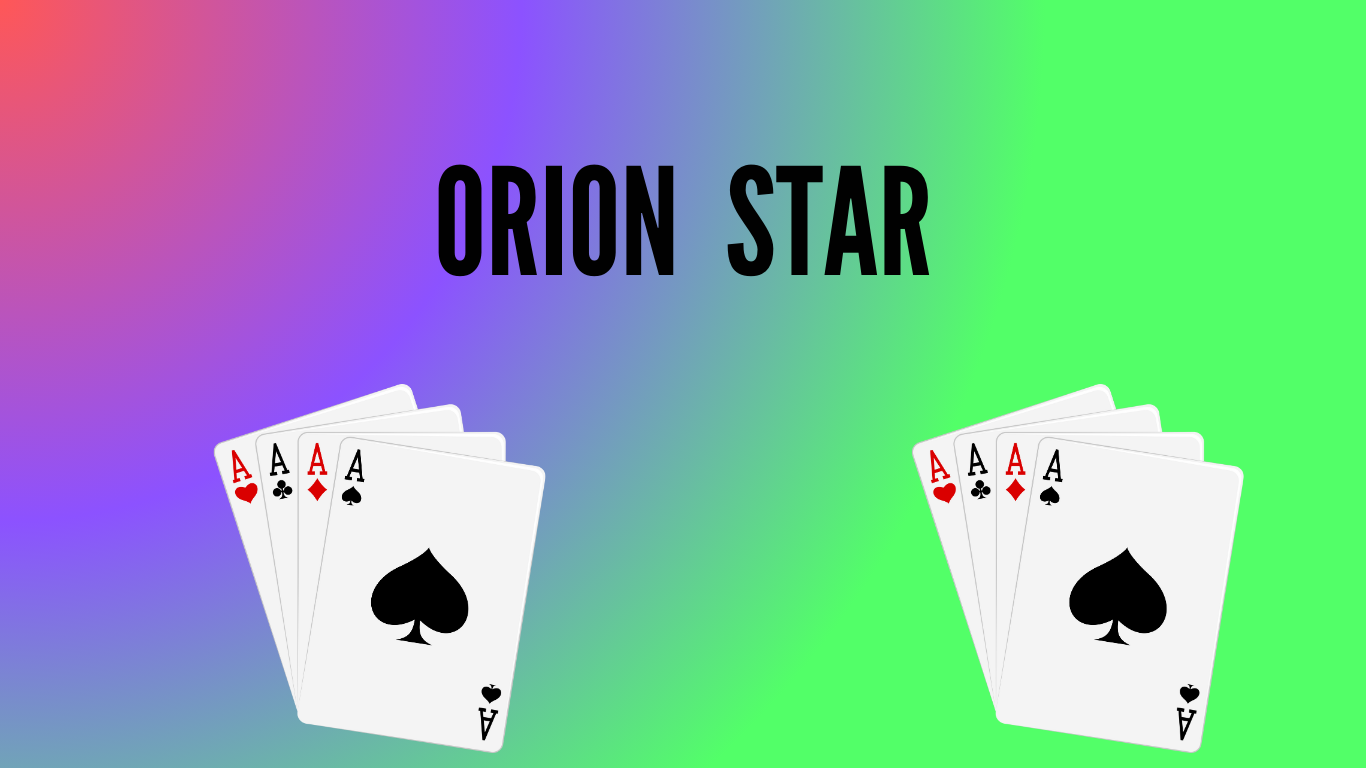
In this comprehensive guide, we’ll dive deep into the world of poker casino games. We’ll cover the different types of poker you’ll encounter at casinos, strategies for winning, tips for beginners, and the best practices for managing your bankroll. By the end of this article, you’ll have a solid understanding of poker, ready to take your skills to the casino floor.
What is Poker Casino?
Casino poker refers to any variation of poker played in a casino, either in a brick-and-mortar establishment or online. Unlike casual poker games, where players compete against each other, in casino poker, the goal is to beat the house, or the casino. The stakes can range from small, casual games to high-stakes tournaments where players compete for massive prizes.
Poker is played using a standard deck of 52 cards, and the game revolves around forming the best possible poker hand. Poker casino games can differ in their rules and betting structures, but the fundamental goal remains the same: create the best hand or bluff your way to victory.
Popular Types of Poker in Casino
Poker comes in many variations, each with its own set of rules and strategies. Below are the most popular types of poker games you’ll encounter in a casino:
1. Texas Hold’em
Texas Hold’em is by far the most popular and widely played version of poker. It’s featured in nearly all major poker tournaments, including the World Series of Poker (WSOP). This variant is easy to learn but difficult to master, making it a favorite among both beginners and experienced players.
In Texas Hold’em, each player is dealt two hole cards face down. Five community cards are dealt face-up in three stages: the flop (three cards), the turn (one card), and the river (one card). Players must make the best possible five-card hand using their hole cards and the community cards. The betting takes place in four rounds: pre-flop, post-flop, post-turn, and post-river.
2. Omaha Poker
Omaha poker is another community card game similar to Texas Hold’em, but with one key difference: each player is dealt four hole cards instead of two. Players must use exactly two of their hole cards combined with three of the five community cards to form their best hand.
Omaha poker comes in two main variations: Omaha Hi and Omaha Hi-Lo. In Omaha Hi, the player with the best high hand wins the entire pot. In Omaha Hi-Lo, the pot is split between the player with the best high hand and the player with the best low hand, which adds an extra layer of strategy to the game.
3. Seven-Card Stud Poker
Seven-Card Stud is one of the oldest forms of poker and does not use community cards. Instead, each player is dealt seven cards, three of which are face down and four face up. The goal is to form the best five-card hand possible using any combination of the seven cards.
Betting occurs in rounds, and players must pay close attention to the cards that have been revealed. Seven-Card Stud is a great game for players who enjoy analyzing the betting patterns of their opponents and keeping track of the cards that have been folded.
4. Caribbean Stud Poker
Caribbean Stud Poker is a casino variant of traditional five-card stud poker. In this game, players compete against the dealer rather than each other. After being dealt five cards, the player must make the best hand possible, using only their cards. The dealer’s hand is revealed after the player has made their decision, and the player wins if their hand is higher than the dealer’s.
One of the attractions of Caribbean Stud Poker is the potential for a progressive jackpot. Players have the option to place a side bet, and if they hit a royal flush, they win a significant portion of the jackpot.
5. Pai Gow Poker
Pai Gow Poker is a fusion of the ancient Chinese game Pai Gow and traditional poker. In Pai Gow, players are dealt seven cards, which they must split into two hands: a five-card “high” hand and a two-card “low” hand. Both hands must beat the dealer’s corresponding hands to win.
Pai Gow Poker is popular for its slower pace and strategic depth, as players must consider the best way to split their cards while managing the house edge. The game often appeals to those who enjoy a more relaxed and strategic form of poker.
6. Three-Card Poker
Three-Card Poker is a simple, fast-paced poker game that’s popular in casinos. The objective is to beat the dealer’s hand with your own three-card hand, and the hands are ranked similarly to traditional poker hands. The twist is that there are fewer cards, so the game moves quickly and requires a slightly different strategy.
Three-Card Poker offers several betting options, including the “pair plus” bet, which pays out if the player is dealt a pair or better. The game’s simplicity and fast pace make it appealing for both new and experienced players.
7. Ultimate Texas Hold’em
Ultimate Texas Hold’em is a variation of the traditional Texas Hold’em poker game where you play against the dealer instead of other players. The game follows the basic structure of Texas Hold’em, with the addition of a more complex betting system and multiple rounds of betting.
In Ultimate Texas Hold’em, players can choose to check, bet, or raise at various points throughout the hand. The game is ideal for those who want to experience the excitement of Texas Hold’em but prefer to play against the house.
How to Play Poker in a Casino
Whether you’re playing online or at a physical casino, the basic principles of poker remain the same. Here’s a step-by-step guide to help you get started with casino poker:
1. Understand the Rules
Before you sit down at a poker table, take the time to understand the specific rules of the game you’ll be playing. Each poker variant has slightly different rules, so it’s crucial to be familiar with the basics of the game you’re about to play. The last thing you want is to be caught off guard by an unfamiliar rule while you’re in the middle of a hand.
2. Place Your Bet
Once the game begins, players must place their initial bet, called the “ante,” or in some cases, a small blind and big blind. This bet allows the game to start, and it gives players something to compete for.
3. Receive Your Cards
In most poker games, players are dealt cards face down. These cards are kept secret from other players, although in community card games like Texas Hold’em and Omaha, some cards will be revealed face-up for everyone to see.
4. Betting Rounds
Poker is played in multiple betting rounds. In each round, players decide whether to fold, check, raise, or call based on the strength of their hand and the bets placed by others. Betting continues until all players have either folded or matched the highest bet. Once all bets are settled, the remaining players reveal their cards and the winner is determined.
5. Showdown and Winning
If there are multiple players left after the final betting round, a showdown occurs. Players reveal their hands, and the best hand wins the pot. If you’re playing against the dealer, you’ll compare your hand against theirs. If your hand beats the dealer’s, you win the round.
Tips for Winning Casino Poker
Poker is a game of skill and strategy. While luck plays a role, those who understand the nuances of the game have a much higher chance of winning. Here are a few tips to help you succeed at casino poker:
1. Learn the Basics of Poker Hand Rankings
Understanding the different poker hand rankings is crucial for making the best decisions during gameplay. Always remember that the highest-ranking hand is the royal flush, followed by a straight flush, four of a kind, full house, flush, straight, three of a kind, two pair, one pair, and high card.
2. Play Tight, Aggressive Poker
A tight-aggressive strategy is often the best approach for new and experienced players alike. Play fewer hands, but bet and raise aggressively when you do play. This puts pressure on your opponents and can lead to profitable situations.
3. Know When to Fold
One of the most important skills in poker is knowing when to fold. If your hand is weak or unlikely to improve, don’t be afraid to fold. Continuing to bet on a losing hand will drain your bankroll quickly.
4. Observe Your Opponents
Poker is a game of psychology. Pay attention to your opponents’ behavior and betting patterns. Are they bluffing? Are they playing conservatively? The more you can learn about their tendencies, the better equipped you’ll be to make the right decisions.
5. Practice Good Bankroll Management
Managing your bankroll is key to long-term success in poker. Set a budget for each session and stick to it. Never bet more than you’re willing to lose, and avoid chasing losses by placing larger bets in hopes of recouping previous losses.
6. Understand Pot Odds and Expected Value
Pot odds refer to the ratio of the current size of the pot to the cost of a contemplated call. Understanding pot odds helps you make more informed decisions about whether to call a bet or fold. Additionally, understanding expected value allows you to determine the profitability of a given bet over the long term.
7. Control Your Emotions
Poker can be an emotional game. Whether you’re on a winning streak or a losing streak, it’s essential to stay calm and avoid letting emotions dictate your decisions. Tilt (playing emotionally after a bad beat) can lead to costly mistakes, so always keep your emotions in check.
Conclusion
Casino poker is a captivating and exciting game that offers endless opportunities for both beginners and experienced players. From Texas Hold’em to Three-Card Poker, the variety of poker games available in casinos ensures there’s something for everyone. By learning the rules, developing a solid strategy, and practicing good bankroll management, you can enhance your chances of success at the poker table.
Whether you play for fun or with serious intentions, the most important aspect of poker is to enjoy the game. Take your time, learn from each session, and remember that poker is about more than just winning—it’s about the experience and the thrill of the game.
Search
More Casino Websites
- 888casino.com
- VegasCasinoOnline.eu
- Planet7Casino.com
- MrGreen.com
- CasinoofDreams.com
- MFortune.co.uk
- 777Casino
- OneCasino.com
- AllSlotsCasino.com
- Casino.com
- FoxyCasino.com
- LeoVegas.com
- VulkanVegas.com
- OzwinCasino.com
- DuckyLuck.ag
- TradaCasino.com
- 7BitCasino.com
- VipSlots.eu
- SilverOakCasino.com
- MBitCasino.com
- BitStarz.com
- Twin.com
Recent Posts
- The Rise of Esports Betting: A New Frontier in Online Gambling
- The Role of Big Data in Shaping the Future of Online Casinos
- The Impact of Virtual Reality (VR) on the Online Casino Experience
- The Role of Artificial Intelligence in Modern Online Casinos
- The Rise of Cryptocurrency in Online Gambling: Benefits and Challenges
Our Partners
https://101casinoreviews.com/
https://slotscashreviews.com/
https://thecasinoreviews.com/
https://casinoslotpoker.com/
https://casinositesreview.com/
https://slots-review.com/
https://onlinelasvegasreviews.com/
https://casinopokerreviews.com/





